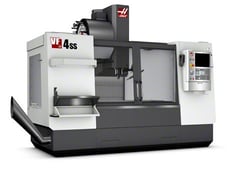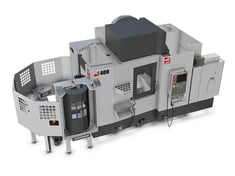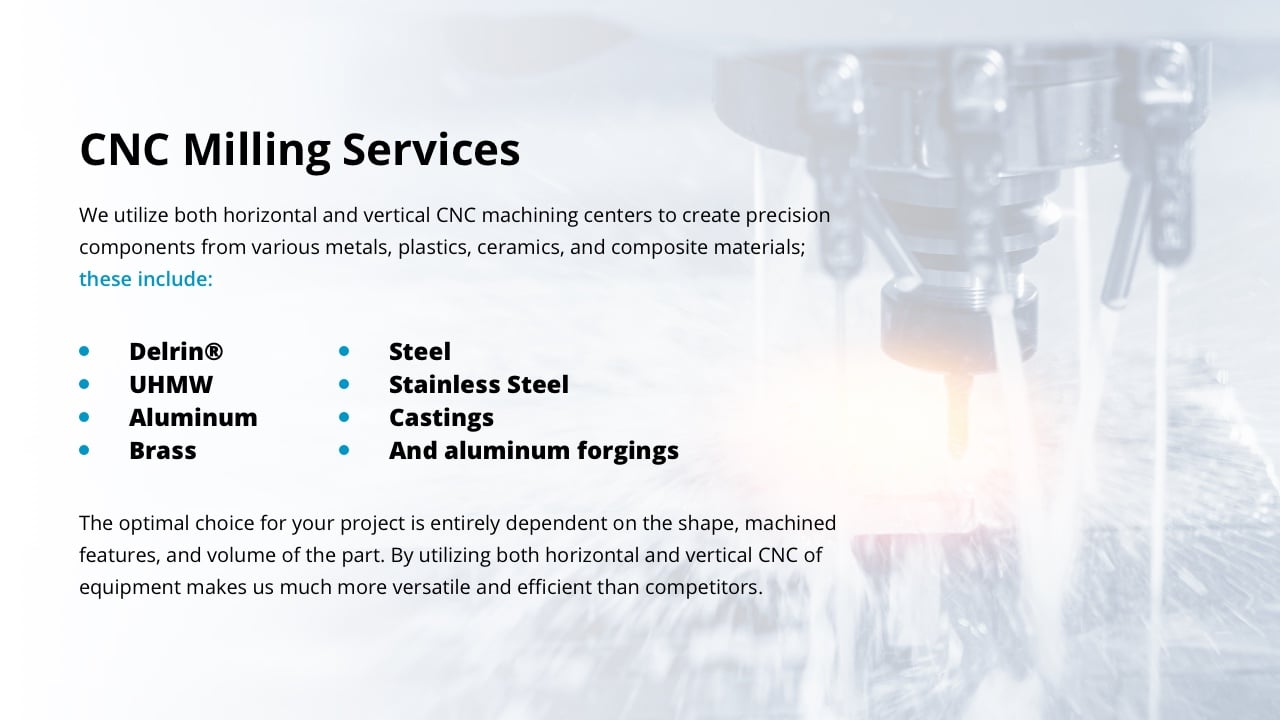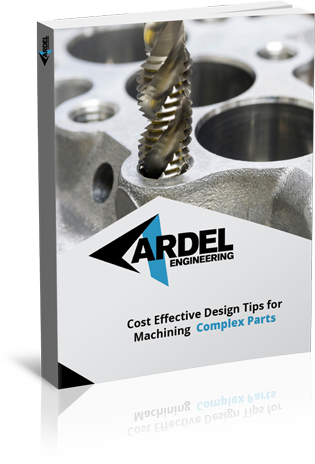Vertical Machining Centers

Vertical machining centers are the simplest CNC mills to program and workholding is typically straightforward without the need for any specialized fixtures.
Many of our CNC machining centers are also equipped with pallet changers, allowing operators to prepare the next load for the mill during prior to completion of the machining cycle, which minimizes changeover times.
Horizontal Machining Centers

Our Equipment & Machining Capabilities
In addition to these two types of machining centers, our facility offers eight different models of equipment, totaling 23 milling centers, providing even more manufacturing flexibility. Our engineers select the ideal equipment for an application based on the geometry, material, and volume of the part being machined to provide customers with premium quality parts at the best possible price.
We are able to hold very tight geometric tolerances for diameter, true position, profile, and flatness. Our milling machines also offer through the spindle coolant and Renshaw Touch probes. They also have tool setters that can be used for tool breakage detection for longer run parts. The lead time for prototype parts typically averages 2 to 3 weeks, while production runs average 4 to 6 weeks. Rush services are also available to accommodate emergency situations as needed.
At Ardel Engineering, we utilize both horizontal and vertical CNC machining centers to create precision components from various metals, plastics, ceramics, and composite materials; these include:
- Delrin®
- UHMW
- Aluminum
- Brass
- Steel
- Stainless Steel
- Castings
- And aluminum forgings
 Click to Enlarge
Click to Enlarge
While many machine shops utilize only one type of milling center, our horizontal and vertical milling centers provide very different sets of advantages. The optimal choice for your project is very dependent on the shape, machined features, and volume of the part, and we have found that using both types of equipment makes us much more versatile and efficient than having a single mill type.
>> Read more about our CNC capabilities
Learn More
For additional information about our CNC milling capabilities, please refer to the specification table posted below, or learn more by clicking the following links:
Specification Table
Milling Equipment
- 2 Mori Seiki NHX 5000 HSC HMC, 20,000 RPM, 28.7" x 28.7" x 34.6," 15 HP
- 5 Haas VF4 SS VMC, 50" x 20" x 25", High Speed 12,000 RPM, 30 HP
- 4 Haas Super VF-4SS APC VMC with pallet changer, 50" x 20" X 25", 12,000 RPM, 30 HP
- 4 Haas VF-4 APC VMC with pallet changer, 50" x 20" x 25", 10,000 RPM, 20 HP
- 2 Fadal VMC 4020 with pallet changer, 20" x 40", 15,000 RPM, 15 HP
- 4 Haas HA5C Auto Digitized Indexer
- 1 Haas HRT310 Auto Digitized Indexer
- 1 SMW Sys 40 Auto Digitized Indexer
Tolerances
- Diameter down to .0002
- Profile down to .0015
- Positional down to .0014
- Flatness down to .002 overall (.0002 inch per inch)
Materials (Metals)
- Alloy Steels
- Aluminum
- Austenitic Stainless
- Brass
- Bronze Alloys
- Carbide
- Carbon Steel
- Cobalt
- Copper
- Die Cast
- Iron
- Lead
- Magnesium
- Martensitic Stainless
- Nickel
- Stainless Steel
- Stellite (Hardfacing)
- Tin
- Titanium
- Zinc
Materials (Exotic & Precious Metals)
- Gold
- Inconel
- Invar
- Iridium
- Kovar™
- Molybdenum
- Monel
- Niobium
- Palladium
- Platinum
- Silver
- Superalloys
- Tantalum
Materials (Plastic Polymers)
- Acrylonitrile Butadiene Styrene (ABS)
- Acetal
- Acrylic
- Delrin®
- Fiberglass Reinforced Plastics
- Nylon
- Phenolic
- Polyamide-Imide (Torlon™)
- Polycarbonate (PC)
- Polyetheretherketone (PEEK)
- Polyetherimide (PEI)
- Polyethylene (PE)
- Polyphenylene Sulfide (PPS)
- Polypropylene (PP)
- Polystyrene (PS)
- Polysulphone
- PolyTetraFluoroEthylene (PTFE)
- Polyvinyl Chloride (PVC)
- Polyvinylidene Fluoride (PVDF)
Materials (Other Materials)
- Ceramic
- Composite Materials
- Fiberglass
- Glass
- Graphite
- Polyester
Lead Times Available
- Prototype: 2-3 weeks (typical)
- Production: 4-6 weeks (typical)
- Quoted on job by job basis
- Emergency services available
- Rush Services Available
Industry Standards
- ANSI
- American National Standards Institute
- AS 9001
- Aerospace Industry Standard
- ASME
- American Society of Mechanical Engineers
- ASTM
- American Society for Testing and Materials
- AWS
- American Welding Society
- CSA
- Canadian Standards Association
- DOT
- Department of Transportation
- FDA
- Food And Drug Administration
- ISO 9001:2008 (certified)
- ISO 13485 (certified)
- International Organization for Standardization
- Mil-Spec
- Military Specifications
- NADCAP
- National Aerospace And Defense Contractors Accreditation Program
- QS
- QS Is a quality standard developed by the Automotive Industries.
- RoHS
- Restriction Of Hazardous Substances (Compliant)
- SAE
- Society of Automotive Engineers
- ITAR (certified)
- International Traffic in Arms Regulations
- TS
- Technical Specifications, used with ISO
Efficiency
- Six Sigma Practices
- Lights Out Manufacturing
- Lean Manufacturing


